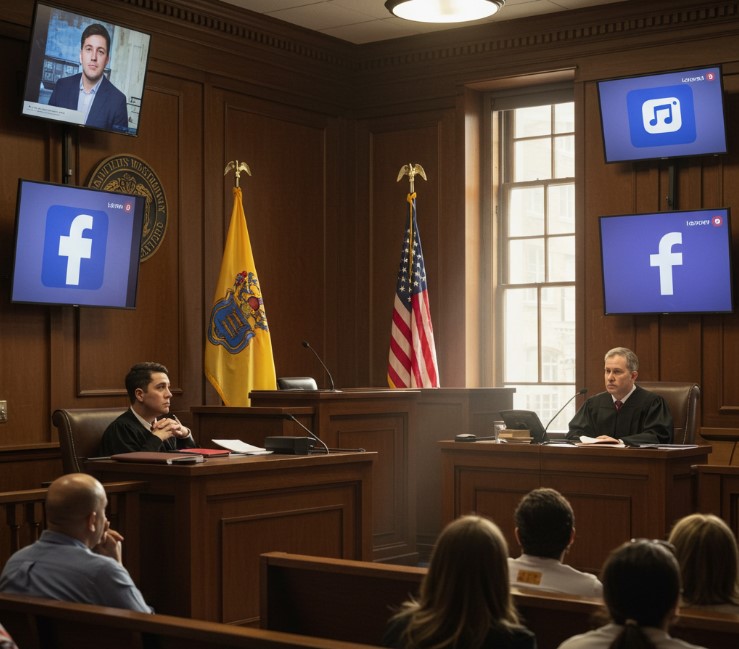Under ordinary contract law, all the parties’ obligations to each other will exist within the four corners of the agreement, pursuant to their “freedom to contract.” However, implied in every contract is a duty of good faith and fair dealing, both in the performance of the contract and in its enforcement. It’s a strange way to think of it, but the duty of good faith and fair dealing undermines the parties’ freedom to contract by expanding the parties’ obligations to each other. Litigants often recast their breach of contract claims as breaches of the covenant of good faith in order to have courts examine the parties’ motives, rather than just their performance (or non-performance). Asking the court to examine motives can be a powerful tool when breach issues are questionable, and it is an even more powerful tool when breach is clear and motives are bad. This latter circumstance appeared in full glory in the recent New Jersey Appellate Division case Net 2 Funds, LLC v. Hartz Mountain Industries, Inc.
Net 2 Funds, LLC v. Hartz Mountain Industries, Inc.
This case involved a relatively straightforward issue – whether the seller, Hartz, was entitled to retain the buyer, Net 2 Funds’ deposit when a real estate transaction fell through. The parties had negotiated a long-term ground lease and had agreed to “go hard,” meaning that Net 2 Funds would waive contingencies which would otherwise allow it to retrieve its deposit if the transaction didn’t close. Nearly a million dollars went into escrow and the agreement provided that if closing didn’t take place due to Net 2 Funds’ default, Hartz would retain the deposit. Critically, the agreement also provided that “time is of the essence.”
In the interim, Net 2 Funds wanted to delay the transaction to take advantage of a tax incentive program for relocating businesses. If the deal were closed prior to the promised incentives being available, Net 2 Funds would lose out. On the other side of the transaction, Hartz wanted closing as soon as possible to facilitate a 1031 exchange on another property.
Good Faith and Fair Dealing
What happened from that point is something of a master class in what to do if you want a court to scold you for failure to abide by your duty of good faith and fair dealing.
Net 2 Funds asked Hartz to structure the deal to fool the New Jersey Economic Development Authority into thinking the transaction would take place later than it actually would, so Net 2 Funds would get the desired tax credits, apparently worth several million dollars. Hartz responded that Net 2 Funds could come to the closing table or forfeit its deposit. Net 2 Funds’ response was essentially that it would fabricate some misrepresentation and tie up Hartz’s money for years- the proverbial “see you in court.”
Closing was scheduled, but prior to the closing the subject building “unexpectedly shook.” Hartz’s engineer inspected the building and determined it was sound and safe for occupancy. The township came to the same conclusion. The time for the closing came and Net 2 Funds didn’t show. Time having been of the essence, Hartz advised that it was retaining the deposit. Seven days later, both Hartz and Net 2 Funds filed suit.
The Suits
At the trial level, Net 2 Funds alleged entitlement to the deposit on several grounds, all pertaining to Hartz’s breaches of the agreement. First, it argued that Hartz materially breached the agreement by failing to immediately remit a report on the shaking incident- even though the report concluded the building was safe, even though it had received the conclusion contained in the report within 4 days of its request and prior to the closing and even though the agreement gave Net 2 Funds no right to terminate on the basis of the non-material shaking event. Second, Net 2 Funds argued that it could terminate because it was not given the right to inspect after the shaking incident, although it had not asked to inspect prior to the closing and its agreement to “go hard” meant that a negative inspection result would still not give it the right to terminate. Last, Net 2 Funds alleged that Hartz’s failure to bring certain documents to the closing (which Net 2 Funds didn’t attend) was a breach of the agreement.
The trial court rejected all these arguments, as did the Appellate Division. Both courts held that Hartz didn’t materially breach the agreement, while Net 2 Funds did. However, the analysis did not end there, since both parties accused the other of having breached their respective duties to deal in good faith.
Bad Motive or Intention
Net 2 Funds attempted to recast the contract breaches it alleged Hartz committed as breaches of the covenant of good faith and fair dealing. In the context of breach of the covenant, the court will not focus on performance or non-performance- rather, it will focus on “bad motive or intention” and a breach may occur even when a party has a right to terminate. Needless to say, Hartz also recast Net 2 Funds’ contract breaches as breaches of the covenant of good faith and fair dealing. As you can imagine, Hartz had significantly greater success.
On the issue of the covenant of good faith and fair dealing, both the trial court and appellate division cited to Brunswick Hills Racquet Club, Inc. v. Route 18 Shopping Ctr. Assocs. Brunswick Hills was also a covenant of good faith and fair dealing case and is highly instructive on the issue of how to behave in the context of a contractual relationship or, more to the point, how not to behave badly.
In Brunswick Hills, the parties had entered in a lease agreement with an option to acquire a 99-year lease. Acquisition came with precise requirements- notice six months before the end of the lease term and tender of payment.
19 months before the option deadline, the tenant advised the landlord it wanted to exercise the option, but did not tender payment. Over the next 19 months, the tenant repeatedly inquired about exercise of the option and preparation of documents and landlord repeatedly responded, though mostly belatedly and evasively. Critically, the landlord never once mentioned that the tenant’s failure to remit payment rendered ineffective its exercise of the option. The first time that fact was conveyed was in a letter dated more than two years after the initial attempt to exercise, advising that the landlord would not honor the option because the request was not accompanied by payment. The letter came months after the option expired, so the tenant had no recourse.
Both the trial court and the appellate division agreed with the landlord’s position, writing that the tenant failed to act in strict accordance with the contract terms governing the option. The appellate panel also noted that the landlord had no affirmative duty to advise the tenant that its failure to remit payment defeated its ability to exercise the option.
The New Jersey Supreme Court agreed with the trial court and the Appellate Division that the tenant had failed to properly exercise the option. But that did not end the inquiry – the court proceeded to analyze whether the landlord’s evasive behavior constituted a violation of the covenant of good faith and fair dealing. The court concluded that the landlord had done so by withholding “vital information from [the tenant] without regard to the harm caused….” The court also focused on the fact that the tenant had not slept on its rights – it had asserted its right to exercise the option a full 19 months before it was set to expire. Yes, the tenant didn’t properly exercise the option. Yes, the contract placed no affirmative duty on the landlord to advise its tenant how to properly exercise the option and, indeed, spelled out exactly what the tenant had to do to get what it wanted. However, the combination of diligence on the part of the tenant, along with the evasive tactics of the landlord and lack of prejudice to it resulted in the highest court in New Jersey focusing not on the tenant’s failure to adhere to the clear the unambiguous terms of the contract, but on the landlord’s pattern of behavior and disregard of harm to the tenant.
Act Honorably in Executing Obligations Under a Contract
Upon this backdrop, the appellate panel in Net 2 Funds found no reason to deviate from the terms of the agreement. On one hand, Hartz certainly breached the contract, but in ways that were minor and technical. On the other hand, Net 2 Funds materially breached the contract by failing to attend the closing and compounded its breach by failing to act in good faith – it attempted to stall a transaction where time was of the essence and Hartz had good reason for insisting on strict deadlines.
Brunswick Hills and Net 2 Funds both provide businesses significant guidance on how to behave while performing their obligations under contracts. While courts will enforce the terms of the agreement, they will not do so in a vacuum – they will note your behavior during performance and it will be used against you if it frustrates a purpose of the agreement. In Brunswick Hills, the court may have come to an entirely different conclusion if the landlord had notified the tenant that it was awaiting payment, but it also would have ruled differently if the tenant had waited until the last moment to exercise the option. In Net 2 Funds, the court may have ruled differently had Hartz not disclosed the result of the safety inspection, or if it had refused Net 2 Funds the opportunity to inspect, even though the contract gave Net 2 Funds no such right.
Ultimately, these cases give broad guidance that contracting parties should act honorably in the context of executing their obligations under a contract, but in terms of precise guidance on whether a party’s course of action runs afoul of its obligation to deal fairly and in good faith, business owners are left to their consciences. When acting in an evasive or otherwise opaque manner, that behavior may be held against you by a court, even if explicit terms of the contract suggest a different result.
Davison, Eastman, Muñoz, Paone, P.A. focuses on the needs of businesses from inception to dissolution.













